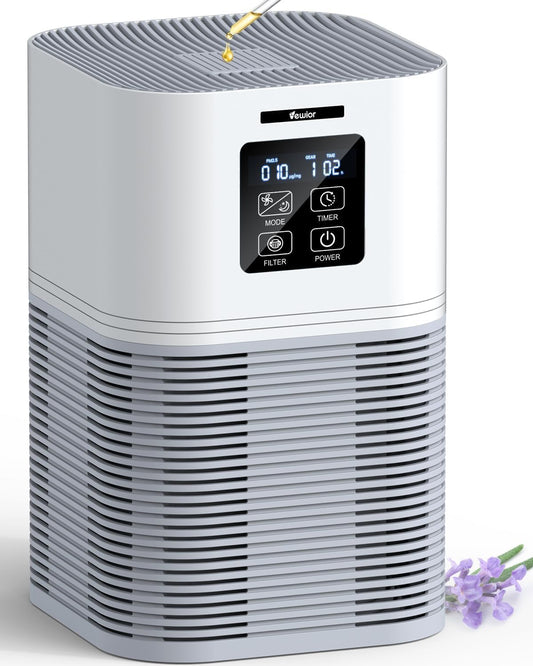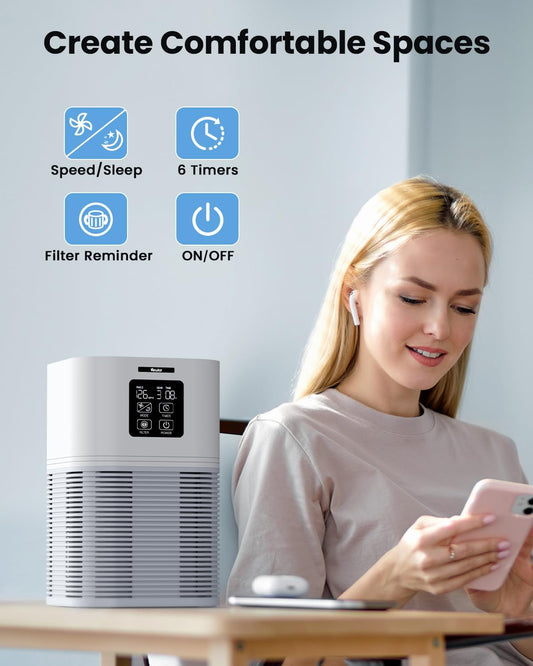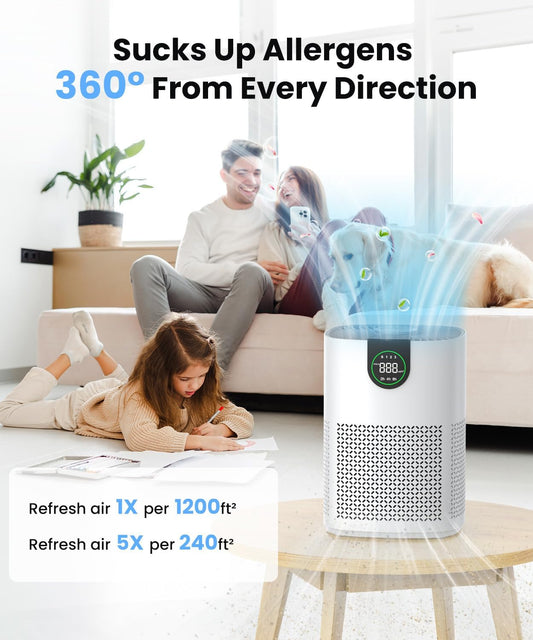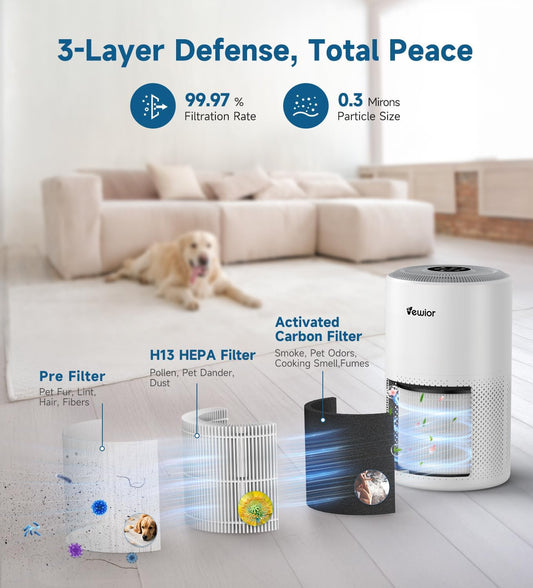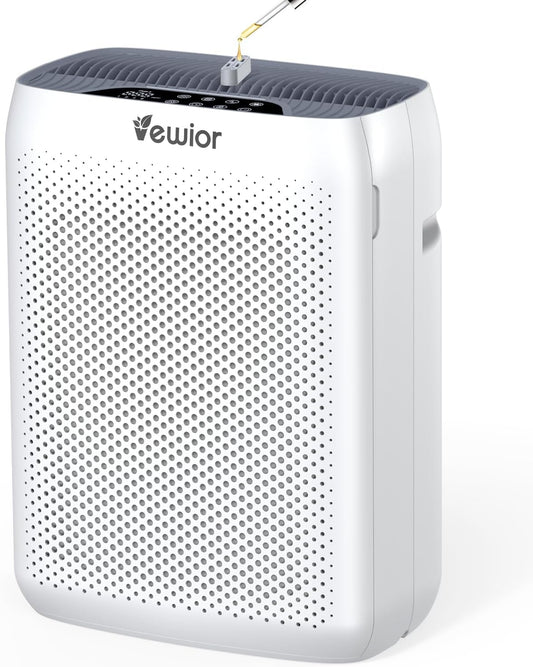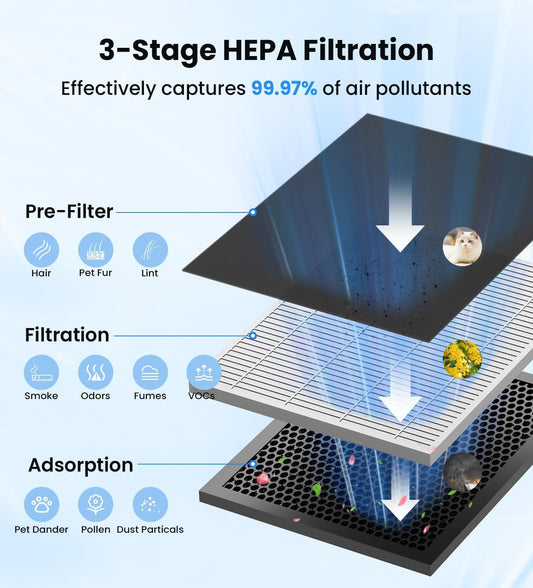Indoor air pollution is a serious problem that can affect the health and well-being of your family. One way to combat this issue is to use an air purifier, but with so many different types available, it can be challenging to know which one is right for you. In this article, we'll explain the difference between an air purifier and a HEPA air purifier so that you can make an informed decision when it comes to improving your indoor air quality.
What is an Air Purifier?
An air purifier is a device that works to remove pollutants and contaminants from the air in a room. These pollutants can include dust, pet dander, pollen, smoke, and other airborne particles. Air purifiers work by using a variety of filters and technologies to trap and remove these particles, leaving the air cleaner and healthier to breathe.
Air purifiers can use a range of filters, including activated carbon filters, ionizers, and ultraviolet (UV) light. While these filters can be effective at removing some pollutants, they are not as efficient as HEPA filters when it comes to removing small particles like pollen, dust, and smoke.
What is a HEPA Air Purifier?
HEPA stands for High-Efficiency Particulate Air, and a HEPA air purifier is a device that uses a HEPA filter to remove small particles from the air. HEPA filters are made of densely packed layers of fibers that are designed to capture particles as small as 0.3 microns, including allergens, bacteria, and viruses.
A HEPA filter works by trapping particles as they pass through the filter. The particles become trapped in the fibers, and the clean air is then released back into the room. HEPA filters are highly effective at removing airborne pollutants, making them an excellent choice for those with allergies, asthma, or other respiratory issues.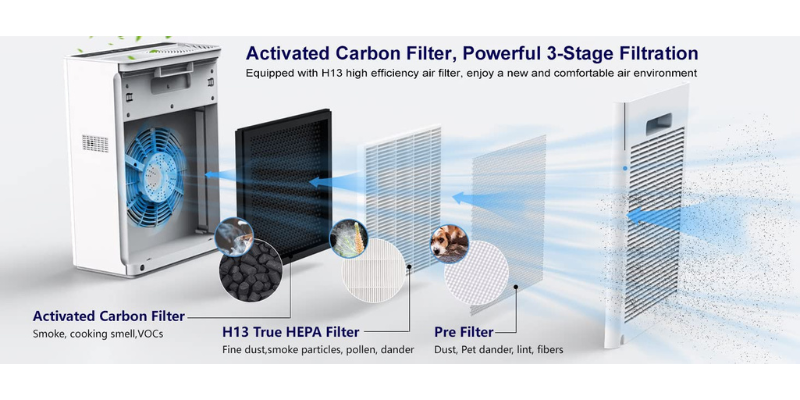
What is the Difference Between an Air Purifier and a HEPA Air Purifier?
The main difference between an air purifier and a HEPA air purifier is the type of filter that is used. While both types of air purifiers work to remove pollutants from the air, an air purifier uses a combination of filters and technologies, whereas a HEPA air purifier uses a HEPA filter as its primary means of filtration.
Another difference between the two types of purifiers is their effectiveness at removing small particles from the air. While an air purifier may be effective at removing larger particles like pet dander and dust, it may not be as effective at removing smaller particles like pollen and smoke. In contrast, a HEPA air purifier is specifically designed to remove particles as small as 0.3 microns, making it much more effective at removing a wider range of airborne pollutants.

When Should You Use an Air Purifier vs a HEPA Air Purifier?
The type of air purifier you choose will depend on your specific needs and the pollutants present in your home. If you're looking for a basic air purifier that can remove larger particles like pet hair and dust, an air purifier may be sufficient. However, if you suffer from allergies, asthma, or other respiratory issues, a HEPA air purifier may be a better choice.
HEPA air purifiers are also recommended for those living in areas with high levels of pollution, as they are better equipped to remove fine particles from the air. Additionally, if you have pets or smokers in your home, a HEPA air purifier can help to remove pet dander and smoke particles, which can be particularly difficult to eliminate.
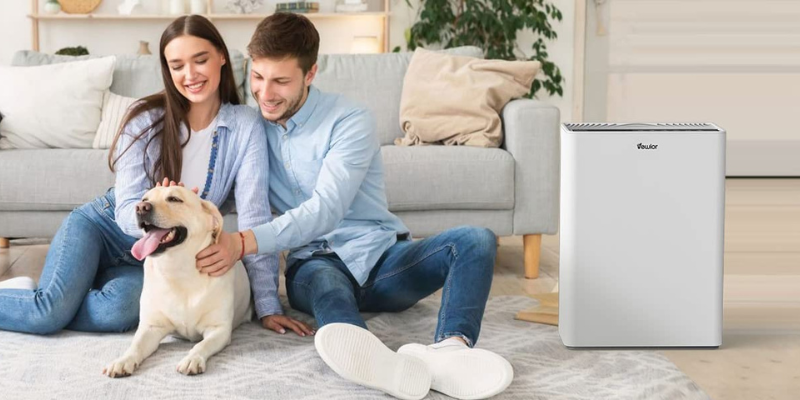
Conclusion
Both air purifiers and HEPA air purifiers can be effective at removing pollutants from the air in your home. However, if you're looking for a more comprehensive solution that can remove a wider range of airborne particles, a HEPA air purifier is likely your best bet.
When selecting an air purifier, it's important to consider the size of the room you want to purify, the types of pollutants present, and the specific needs of your family. Look for an air purifier with a CADR (Clean Air Delivery Rate) rating that matches the size of your room, and choose a model with a filter that is suitable for the types of pollutants you want to remove.
To ensure that your air purifier continues to operate effectively, it's important to regularly maintain it by following the manufacturer's recommended filter replacement schedule. Over time, filters can become clogged with pollutants, which can reduce the purifier's efficiency and even worsen indoor air quality. By keeping your air purifier well-maintained and using it regularly, you can help improve the air quality in your home and promote better health and well-being for you and your family.


